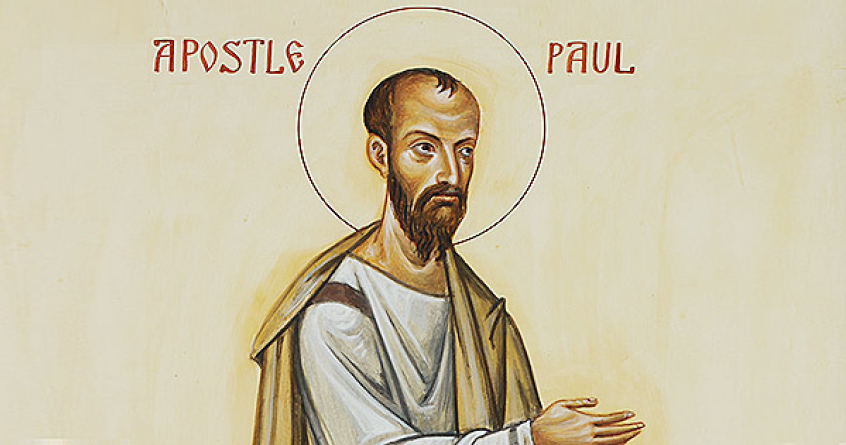
David Robertson recently wrote on this website that you can be a Jew and a Christian at the same time. To Christians who genuinely believe that Paul was both Jew and Christian, and that contemporary Christians can also be Jewish, I regard this as simply impossible for several reasons.
You may not know this, but this thinking is actually offensive to Jews. One reason for this, it must be said, is the history of Christian hostility towards Jews. But there are other reasons why we take this view.
In the modern world, for example, we believe that once you have converted to another religion you are no longer a member of the former religion, even though you may still think that you are.
Recently, for instance, a number of court cases have turned down applications for emigration to Israel by Christians who were born Jewish but who wish to take advantage of the 'law of return' which is meant for people who are Jewish now.
While it is OK to become an Israeli citizen as a member of another religion, such as Baha'i, Christianity, Druze, or Islam, you cannot do so by the 'law of return' i.e. by arguing that you are emigrating to the only Jewish State in the world as a Jew, when in fact you are not a practising Jew.
It may also come as some surprise to you to know that while over the last 2,000 years, there have been various attempts by Christians to convert Jews, it is actually strictly illegal for Christians in Israel to engage in any kind of missionary work or to try to convert Jews there.
Having said that, it is interesting to consider the 'Jewishness' of Paul and to offer some, I hope helpful, insights from the Jewish perspective.
Like many early Christian believers, Paul was a Jew who came to believe in Christ, making him in the eyes of some a 'Christian'. However, to the Jewish mind, simple 'belief' in Jesus would not necessarily turn a Jew into a Christian. It depends on what this belief entailed.
Paul justifies his Jewish background by calling himself 'a Hebrew of the Hebrews' and states that he even sat 'at the feet of Gamaliel' in order to persuade contemporaries of a new covenant. But this is where it becomes problematic for me and certainly within the context of 'being a Jew and a Christian at the same time', because whatever Paul's new way of thinking actually was (and sometimes, it does seem to me that he was a bit confused himself), it cannot any longer by this point be regarded as Judaism.
As for Paul being a 'Hebrew of the Hebrews', I read this as a defensive statement aimed at convincing his audience of his impeccable Jewish antecedents. At least one highly-regarded Jewish theologian of this historical period actually disputes Paul's claim to being Jewish at all. But even if we do accept Paul's claim that he was originally Jewish, to the Jewish mind it is not what you come from that matters, but what you do in the present and the future. Origins are not the most important feature of Judaism and so in determining whether Paul was Jewish, Jews would be most interested in his life and not his background or who he studied under.
On that note, he describes himself in Acts as sitting at the feet of Gamaliel and it may surprise you to learn that Gamaliel came from a line of very lenient Torah scholars, who always bore in mind the fragility of human beings. In cases of legal dispute, Gamaliel and his followers tried their best to listen to the other side of the argument, but then invariably came down on the side of the poor and the homeless.
With regard to women, for instance, Gamaliel the Elder, at whose feet Paul specifically states that he sat, is quoted as follows in the Talmud, Avodah Zarah:
"Gamliel the Elder was once strolling on the Temple Mount, when he saw a non-Jewish woman and he pronounced a benediction regarding her" – the reference being to the blessing: "Blessed be He that He created such beautiful creatures in His world.''
The school of Shammai was, as I understand Paul to be, far stricter about the role of women in society. To give you a flavour of their thinking, this school of thought, in stark contrast to Gamaliel, dramatically stated that "it had been better for humans not to have been created."
What's noteworthy is that it is Rabbi Gamaliel and his school of thought that have been followed by the majority of Jews, including to this day.
Paul also calls himself as a Pharisee and the son of Pharisees, although his entire approach appears to me to be anti-Pharisaical. It is interesting for me as a Jew to note that the term Pharisaic has often since been used in a negative way by Christians, in stark contrast to how we as Jews understand the term 'Pharisee'.
It comes from the Hebrew word p-r-sh, which means 'to interpret'. This in turn means to separate meanings out from one another. The Pharisee in our tradition was therefore the precise opposite of the ivory-towered priest, who separated himself from the common people by status and title. On the contrary, the Pharisee was regarded as 'one of the people' and was often from the poorest rung of society. Pharisaism was actually therefore anti-hierarchical and quite close to what Christians today would call a lay movement.
I might surprise you by saying that I think the Pharisaical approach is actually Judaism's great gift to the world! This is because as we Jews understand the term, it espouses democracy and encourages everyone to study the Torah text in order better to understand G-d's word and thus to behave in a way consonant with G-d's wishes. Jews today, of whichever denomination, are therefore actually proud to be associated with the Pharisees who turned the Temple altar into the dining table at home, bringing the family together surrounded by books. How different the interpretation between the two faiths!
As for the Torah itself, Paul translates this word as 'law' but Torah is not in fact simply law and the Jewish perspective would regard Paul as being incorrect to state that it was. Very simply, Torah is teaching about G-d and yes, His law, but also thousands of years of interpretation and practice.
In any case, gradually the 'law' Paul spoke of came to be replaced by his followes and successors with the concept of 'faith' and the person of Jesus, and then eventually with the idea that the covenant between G-d and the Jewish people was now broken. But this is another point where we differ because Jews have never actually interpreted the covenant as being broken.
That is because this covenant was originally made by G-d with Abraham and then with all the Jewish people at Mount Sinai on the festival of Shavuot. This was the time when every single person saw the sounds and heard the visions as God gave the Torah - or the Ten Commandments, as Christians would refer to them - and this is an experience which is re-enacted by Jews at this time of year, often taking place around the same time as the Christian festival of Pentecost.
There is certainly lots more we could explore. But I write all this because Jews do have a perspective on Paul and I think Christians can benefit from knowing what that is. But I am well aware that the only agreement we may reach on this complex man is that we agree to disagree!
Dr Irene Lancaster is a Jewish academic, author and translator who has established university courses on Jewish history, Jewish studies and the Hebrew Bible.













